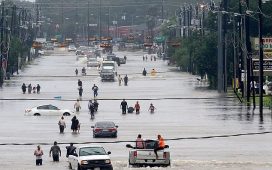Sleeping pills for children at record high after Covid lockdowns with more than half a million prescriptions issued for ‘hypnotics’
- Sleeping-pill prescriptions to under-16s almost doubled between 2016 and 2021
- Experts think that being at home in lockdowns and anxiety has contributed
- An increase in evening screen usage has also been flagged as an issue
Lockdown led to a record number of children being prescribed sleeping pills as they struggled to cope with the disruption.
Figures unearthed by The Mail on Sunday show that sleeping-pill prescriptions to under-16s in England almost doubled between 2016 and 2021, with particularly big jumps after the pandemic began.
In 2021, the last year for which statistics are available, 643,998 prescriptions of ‘hypnotics’ were issued to under-16s – one for every 17 children.
Pre-pandemic, prescriptions of these sleep-inducing medicines to children were rising at a rate of about 50,000 a year.

Sleeping-pill prescriptions to under-16s in England almost doubled between 2016 and 2021
But from 2020 onwards, that accelerated to an annual rise of nearer 80,000.
Medical guidelines say these types of medicine should not normally be prescribed to children unless it is for the short-term treatment of night terrors or sleepwalking.
Experts believe a toxic cocktail of disruption to children’s schooling caused by lockdowns, a resultant lack of exercise because of them being cooped up at home and anxiety about not seeing friends and for the safety of family members has made sleeping more difficult.
More recently, their family’s money worries might also be playing on their minds.
Chris Martin, chief executive of The Mix, a UK charity for young people, said: ‘The continued rise in young people using sleeping pills is very concerning. It is vital that they get the rest they need in order to cope.
‘We recommend young people try to create healthy sleep habits rather than turning to prescription drugs – avoiding screens before bed, exercising regularly and reaching out for support if they feel overwhelmed.’

Experts believe a toxic cocktail of disruption to children’s schooling caused by lockdowns has contributed to worsening sleeping difficulties experienced over the time period
He said young people faced ‘multiple challenges’ with ‘anxiety and stress driven by the cost-of-living crisis’ increasingly mentioned by those calling its helpline.
The revelation comes as separate statistics show hundreds of children and teenagers in England are being admitted to hospital with sleep disorders, with admissions for conditions such as insomnia almost doubling in recent years.
A 2021 study review, published in the journal Sleep Science, noted: ‘Physical activity has been considered an effective, non-pharmacological approach to improve sleep… In this context, increased physical inactivity among children and adolescents is worrisome.’
Another problem is the rise in screen time among children and teens, particularly in the evening.
An article in the journal Child And Adolescent Psychiatric Clinics Of North America warned: ‘In a recent literature review of studies investigating the link between youth screen media use and sleep, 90 per cent of included studies found an association between screen media use and delayed bedtime and/or decreased total sleep time.’










